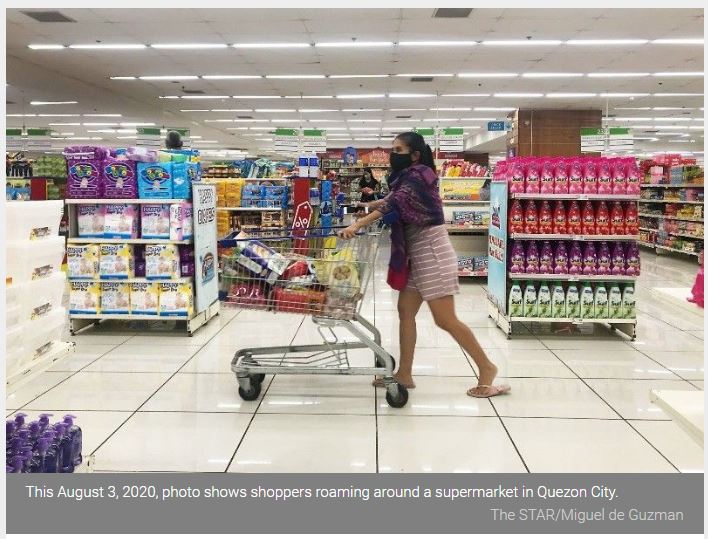Philippines: Consumer loans suffer first-ever quarterly decline amid pandemic
MANILA, Philippines — Consumer loans posted their first ever quarterly decline in June despite record-low borrowing costs, adding concerns to a government counting on banks to rescue the economy from a pandemic-induced recession and stimulate spending.
Latest data from the Bangko Sentral ng Pilipinas (BSP) showed loans extended to households declining to P2 trillion as of June from P2.01 trillion in March.
This is the first quarter-on-quarter drop in available central bank records dating back to 2009. Year-on-year, consumer loans grew 14.1% in June, slower than 17.7% annual uptick posted in March.
“The BSP report shows the early impact of the economic recession on the banking sector,” Nicholas Mapa, senior economist at ING Bank in Manila, said in an e-mail.
Of total loans, P111 billion were deemed non-performing, or those unpaid 30 days past due, up 23.3% quarter-on-quarter. Soured consumer loans accounted for 5.55% of total consumer loans, but in the entire bank books, they accounted for a smaller 1.07%.
Lenders had anticipated the increase in soured consumer loans as the pandemic dragged on. Data showed banks set aside a P70.4 billion in the second quarter to protect their balance sheet from a potential build-up of unsettled consumer debts. The figure was up 30% from March.
Despite bigger provisions getting set aside, Mapa has a warning amid the rise in bad debts. “Should this situation deteriorate further with the economy failing to rebound quickly, we can expect the strain to be felt by banks and their balance sheets,” he said.
The disappointing consumer lending situation comes despite efforts by the central bank to perk up demand for loans. Monetary authorities have slashed interest rates by 175 basis points to historic low of 2.25% and relaxed bank’s reserve requirement in a bid to unleash liquidity into the financial system.
However, a pause from the easing episode last month highlighted the limits of BSP’s power to induce demand. On the ground, confidence remained down despite a roll back of movement restrictions last June, while consumers are battered by severe joblessness that make them too risky to lend to.
“A sustained increase in non-performing loans and defaults will likely force banks to tighter credit standards further which could lead to slower capital formation and weigh of (gross domestic product) momentum,” Mapa explained.
By type of consumer loan, residential real estate credit cornered the bulk of loans extended as of June. This segment amounted to P800 billion, up 3.5% from the previous quarter.
Motor vehicle loans followed, which declined by 0.9% quarter-on-quarter to P591 billion after an uptick in motorcycle loans was offset by a decrease in auto loans. Credit card receivables came next with P412 billion, down 7.6% on a quarterly basis.
Meanwhile, salary loans slightly inched up to P162 billion as of June while other consumer loans jumped 6.3% quarter-on-quarter to P31.7 billion.
Source: https://www.philstar.com/business/2020/09/17/2043154/consumer-loans-suffer-first-ever-quarterly-decline-amid-pandemic


 Thailand
Thailand




